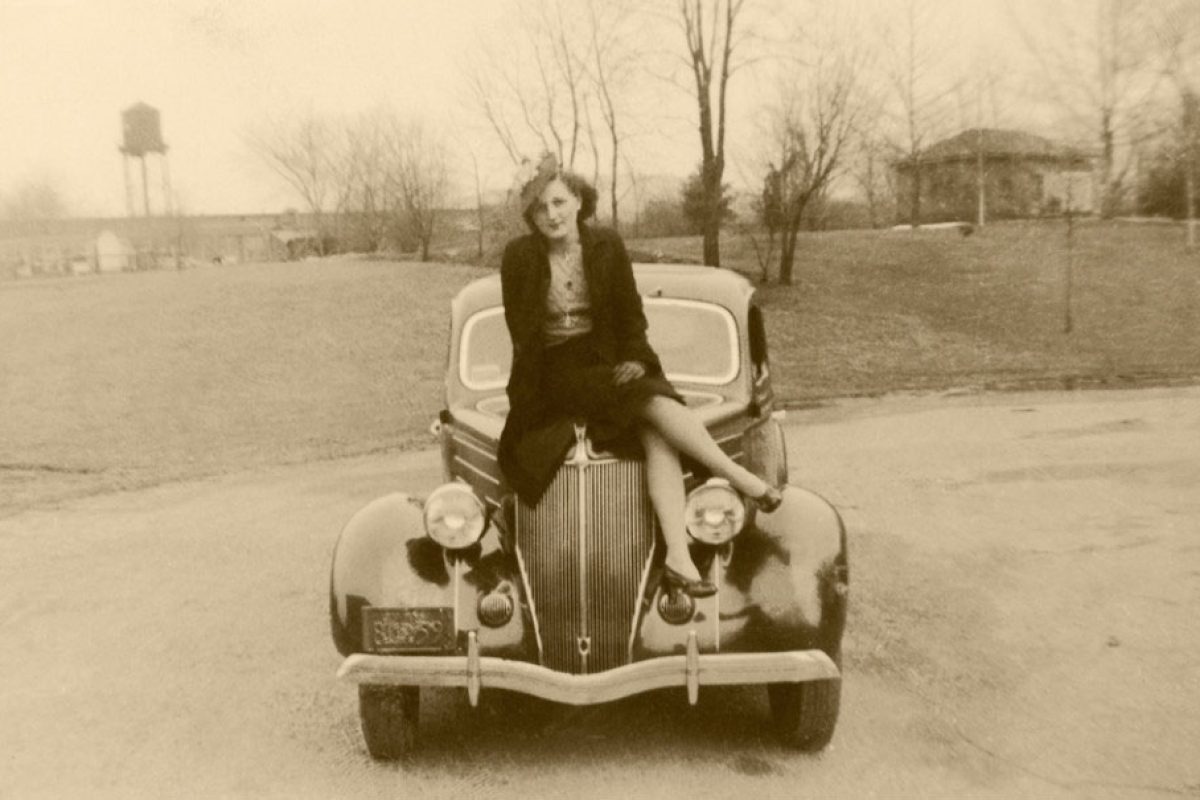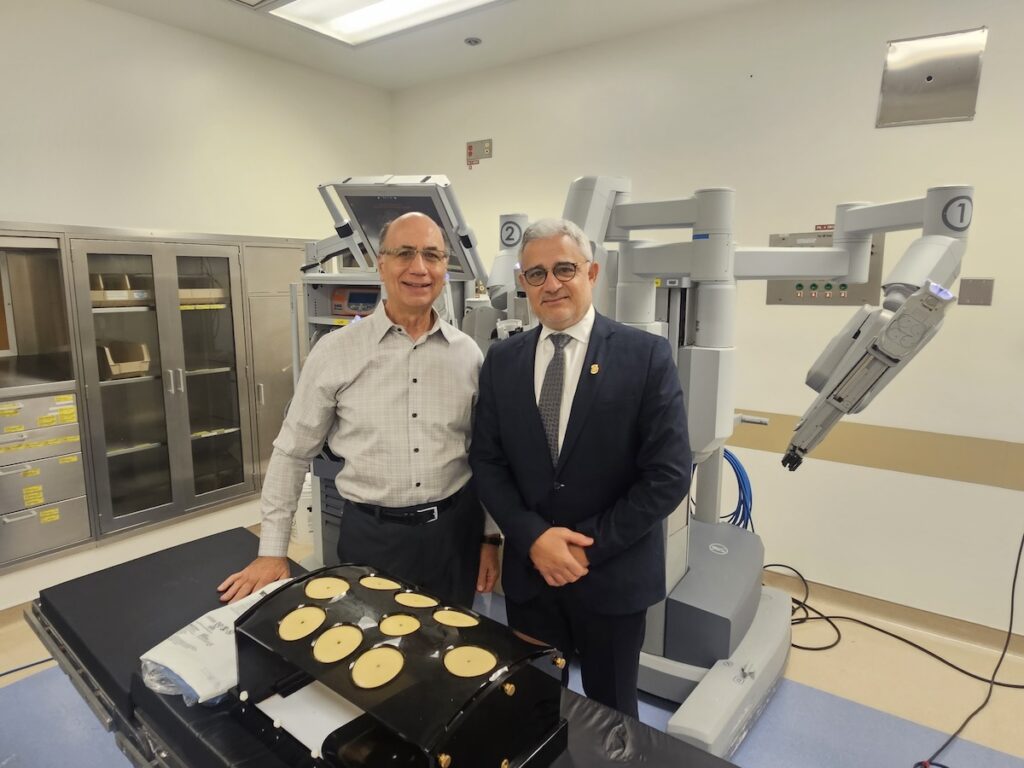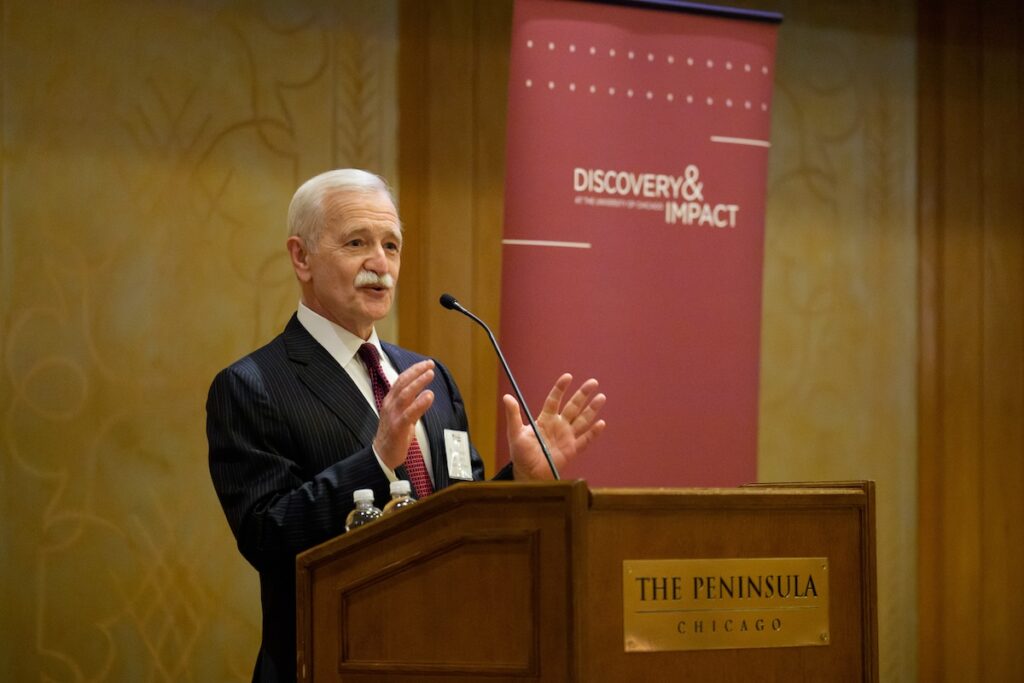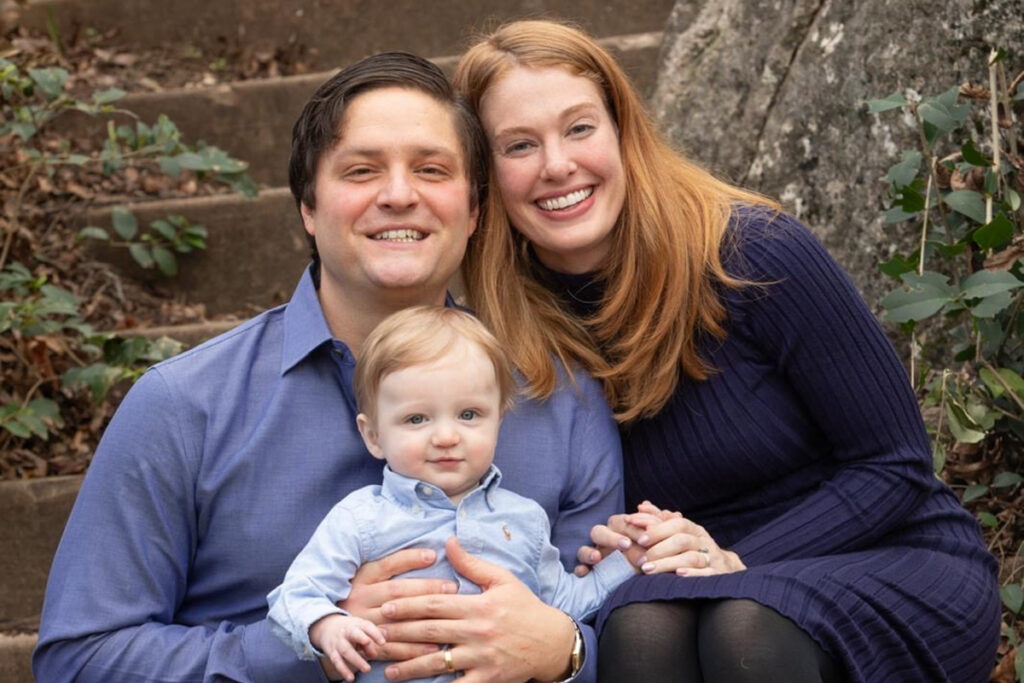Pancreatic cancer touched Bonnie Rothman’s life twice. First, her maternal grandmother was stricken with the disease and passed away soon after. More than 30 years later, Rothman’s mother was diagnosed and passed away three-and-a-half months later.
“I don’t think any disease should have the impact of a train wreck, especially in this day and age with the amount of knowledge we have in cancer,” Rothman said.
After losing her mother and grandmother, Rothman felt frustrated by the limited treatment options available and committed herself to doing what she could to help advance understanding of the disease. She also followed her mother’s advice to get screened on a regular basis.
A Chicago resident for the past 25 years, Rothman went to UChicago Medicine to undergo pancreatic cancer screening. There, she found Sonia Kupfer, MD, associate professor of medicine and director of the Gastrointestinal Cancer Risk and Prevention Clinic, which offers personalized risk assessment for patients and families who may be at increased risk for developing gastrointestinal cancers.
“We are not willing to accept the current state of affairs for pancreatic cancer, for which survival rates have generally not improved over the last 40 years,” Kupfer said. “Early detection holds promise because pancreatic cancer typically does not show symptoms until it has advanced or spread, when the cancer is more difficult to treat.”
Despite the Rothman family’s history of pancreatic cancer, they learned through genetic testing that their cancer was not caused by a genetic syndrome associated with the disease. In fact, while up to 20 percent of pancreatic cancers have a genetic link, the majority of cases develop by chance or are related to a risk factor such as smoking or obesity.
“We see cases where multiple family members across generations are afflicted by the same cancers, but without a genetic risk factor,” Kupfer said. “These families may share other types of risk factors, such as environmental factors, shared habits, or potentially related gut bacteria.”
Seeking to improve diagnosis and prevention of pancreatic cancer, Rothman made a $100,000 gift supporting the Pancreatic Cancer Early Detection Program within the GI Cancer Risk and Prevention Clinic at UChicago Medicine. The gift will enable Kupfer and her team to expand the clinic’s efforts to advance research studies aimed at finding innovative and less invasive ways to detect pancreatic cancers earlier.
“Bonnie’s gift will help us build the infrastructure to identify new biomarkers and develop new genetic tests to catch these cancers earlier,” Kupfer said. “Without philanthropic support from donors like Bonnie, we wouldn’t have the resources to get this important work off the ground.”
Rothman’s gift will also allow Kupfer and her team to collaborate with other academic medical centers through consortia, including the Precede Consortium, an international effort to improve survival for pancreatic cancer by improving early detection, screening, risk modeling, and prevention.
“By partnering with other institutions around the world, UChicago Medicine has the opportunity to make new discoveries that will catapult all of us forward in improving outcomes for those impacted by pancreatic cancer,” Rothman said.
In addition, Rothman’s support will help provide resources to hire new personnel to contact patients and gather data for research projects. One such study is a collaboration with the Swedish company Immunovia, which seeks to identify biomarkers from blood samples that could determine an individual’s risk for developing pancreatic cancer early.
Through enhanced early detection and close monitoring, Kupfer and her team can catch early signs of pancreatic cancer, and more lives may be saved when the cancer is at a treatable stage.
“I feel very fortunate to have UChicago Medicine as my local medical center, where I have access to physician-scientists like Dr. Kupfer who are such brilliant thought leaders,” Rothman said. “There has to be a huge leap forward for pancreatic cancer research, and I think UChicago Medicine’s expertise and collaborative approach is poised to accomplish that.”
Published January 2021




